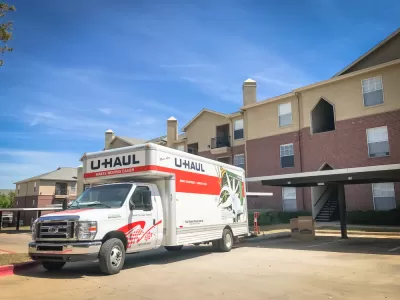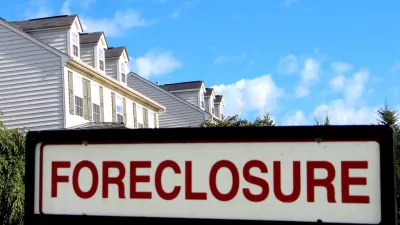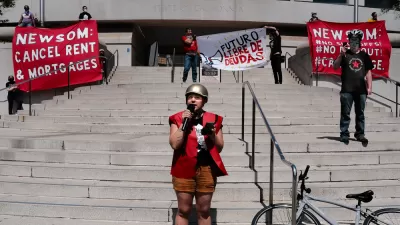A new report looks at pre-existing foreclosure and eviction rates to predict where the worst outcomes of the pandemic's economic downturn for homeowners and renters are likely to happen.

"Phoenix-area residents were more than twice as likely to lose a home to eviction or foreclosure than the typical U.S. resident before COVID-19 hit, and the rate of housing loss is expected to climb significantly because of the pandemic as well as rising home prices and rents, according to a new study," reports Catherine Reagor.
Reagor is sharing data from a report published recently by New America, a Washington, D.C.-based think tank. The study, titled "Displaced in America," identified the U.S. areas with the most acute pre-existing housing losses to predict where the COVID-19 crisis will hit renters and homeowners the hardest, explains Reagor.
Maricopa County, which includes Phoenix, had a housing loss rate of 4.5% between 2014 and 2018, more than double the national average, but some locations around the country had even higher housing loss rates, according to the report. Petersburg, Virginia, had the highest housing loss rate at 12.1%.
Reagor includes an explanation of the report's focus on the future of the housing and eviction crisis expected to hit the country as eviction and foreclosure moratoriums expire, including a section describing how the Maricopa County eviction process favors landlords. Reagor also lists the recommendations from the New America report that provides recommendations, specific to the Phoenix area, for mitigating the worst housing lost outcomes at risk with the pandemic and the resulting economic downturn.
FULL STORY: Metro Phoenix's eviction and foreclosure rates double U.S. average, new report says

Planetizen Federal Action Tracker
A weekly monitor of how Trump’s orders and actions are impacting planners and planning in America.

Congressman Proposes Bill to Rename DC Metro “Trump Train”
The Make Autorail Great Again Act would withhold federal funding to the system until the Washington Metropolitan Area Transit Authority (WMATA), rebrands as the Washington Metropolitan Authority for Greater Access (WMAGA).

The Simple Legislative Tool Transforming Vacant Downtowns
In California, Michigan and Georgia, an easy win is bringing dollars — and delight — back to city centers.

The States Losing Rural Delivery Rooms at an Alarming Pace
In some states, as few as 9% of rural hospitals still deliver babies. As a result, rising pre-term births, no adequate pre-term care and "harrowing" close calls are a growing reality.

The Small South Asian Republic Going all in on EVs
Thanks to one simple policy change less than five years ago, 65% of new cars in this Himalayan country are now electric.

DC Backpedals on Bike Lane Protection, Swaps Barriers for Paint
Citing aesthetic concerns, the city is removing the concrete barriers and flexposts that once separated Arizona Avenue cyclists from motor vehicles.
Urban Design for Planners 1: Software Tools
This six-course series explores essential urban design concepts using open source software and equips planners with the tools they need to participate fully in the urban design process.
Planning for Universal Design
Learn the tools for implementing Universal Design in planning regulations.
Smith Gee Studio
City of Charlotte
City of Camden Redevelopment Agency
City of Astoria
Transportation Research & Education Center (TREC) at Portland State University
US High Speed Rail Association
City of Camden Redevelopment Agency
Municipality of Princeton (NJ)





























